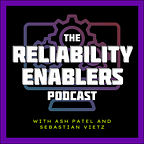Andrew Fong’s take on engineering cuts through the usual role labels, urging teams to start with the problem they’re solving instead of locking into rigid job titles. He sees reliability, inclusivity, and efficiency as the real drivers of good engineering.
In his view, SRE is all about keeping systems reliable and healthy, while platform engineering is geared toward speed, developer enablement, and keeping costs in check. It’s a values-first, practical approach to tackling tough challenges that engineers face every day.
Here’s a slightly deeper dive into the concepts we discussed:
Career and Evolution in Tech: Andrew shares his journey through various roles, from early SRE at Youtube to VP of Infrastructure at Dropbox to Director of Engineering at Databricks, with extensive experience in infrastructure through three distinct eras of the internet. He emphasized the transition from early infrastructure roles into specialized SRE functions, noting the rise of SRE as a formalized role and the evolution of responsibilities within it.
Building Prodvana and the Future of SRE: As CEO of startup, Prodvana, they're focused on an "intelligent delivery system" designed to simplify production management for engineers, addressing cognitive overload. They highlight SRE as a field facing new demands due to AI, discussing insights shared with Niall Murphy and Corey Bertram around AI's potential in the space, distinguishing it from "web three" hype, and affirming that while AI will transform SRE, it will not eliminate it.
Challenges of Migration and Integration: Reflecting on experiences at YouTube post-acquisition by Google, the speaker discusses the challenges of migrating YouTube’s infrastructure onto Google’s proprietary, non-thread-safe systems. This required extensive adaptation and “glue code,” offering insights into the intricacies and sometimes rigid culture of Google’s engineering approach at that time.
SRE’s Shift Toward Reliability as a Core Feature: The speaker describes how SRE has shifted from system-level automation to application reliability, with growing recognition that reliability is a user-facing feature. They emphasize that leadership buy-in and cultural support are essential for organizations to evolve beyond reactive incident response to proactive, reliability-focused SRE practices.
Organizational Culture and Leadership Influence: Leadership’s role in SRE success is highlighted as crucial, with examples from Dropbox and Google emphasizing that strong, supportive leadership can shape positive, reliability-centered cultures. The speaker advises engineers to gauge leadership attitudes towards SRE during job interviews to find environments where reliability is valued over mere incident response.
Outcome-Focused Work Over Titles: Emphasis on assembling the right team based on skills, not titles, to solve technical problems effectively. Titles often distract from focusing on outcomes, and fostering a problem-solving culture over role-based thinking accelerates teamwork and results.
Engineers as Problem Solvers: Engineers, especially natural ones, generally resist job boundaries and focus on solving problems rather than sticking rigidly to job descriptions. This echoes how iconic engineers like Steve Jobs valued versatility over predefined roles.
Culture as Core Values: Organizational culture should be driven by core values like reliability, efficiency, and inclusivity rather than rigid processes or roles. For instance, Dropbox's infrastructure culture emphasized being a “force multiplier” to sustain product velocity, an approach that ensured values were integrated into every decision.
Balancing SRE and Platform Priorities: The fundamental difference between SRE (Site Reliability Engineering) and platform engineering is their focus: SRE prioritizes reliability, while platform engineering is geared toward increasing velocity or reducing costs. Leaders must be cautious when assigning both roles simultaneously, as each requires a distinct focus and expertise.
Strategic Trade-Offs in Smaller Orgs: In smaller companies with limited resources, leaders often face challenges balancing cost, reliability, and other objectives within single roles. It's advised to sequence these priorities rather than burden one individual with conflicting objectives. Prioritizing platform stability, for example, can help improve reliability in the long term.
DevOps as a Philosophy: DevOps is viewed here as an operational philosophy rather than a separate role. The approach enhances both reliability and platform functions by fostering a collaborative, efficient work culture.
Focus Investments for Long-Term Gains: Strategic technology investments, even if they might temporarily hinder short-term metrics (like reliability), can drive long-term efficiency and reliability improvements. For instance, Dropbox invested in a shared metadata system to enable active-active disaster recovery, viewing this as essential for future reliability.








